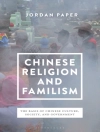Jewish Cattle Traders in the German Countryside, 1919–1939, explores the social and economic networks in which this group operated and the informal but durable bonds between Jewish cattle traders and farmers that not even incessant Nazi attacks could break.
Stefanie Fischer combines approaches from social history, economic history, and sociology to challenge the longstanding cliché of the shady Jewish cattle dealer. By focusing on trust and social connections rather than analyzing economic trends, Fischer exposes the myriad inconsistencies that riddled the process of expelling the Jews from Germany.
Jewish Cattle Traders in the German Countryside, 1919–1939, examines the complexities of relations between Jews and non-Jews who were engaged in economic and social exchange. In the process, Fischer challenges previous understandings of everyday life under Nazi rule and discovers new ways in which Jewish agency acted as a critical force throughout the exclusionary processes that took place in Hitler’s Germany.
Inhoudsopgave
Acknowledgments
List of Abbreviations
Introduction
1. ‘The Cattle Trade Was Firmly in the Hands of Jews?’: A Social History of Cattle Trading Businesses in the Weimar Germany
2. ‘The Cattle Business, It’s All about Trust’: The Role of Trust in Private Cattle Trading Relationships in Weimar Germany
3. Constituting Trust by Official Authority
4. Destroying Relationships of Trust by Force: The Ouster of Jews from the Cattle Trade under the Nazi Reign of Violence
Conclusion
Notes
Bibliography
Index of Persons
Index of Places
Index of Subjects
Over de auteur
Stefanie Fischer is a research associate at the Centre for Research on Antisemitism at the Technical University, Berlin. She specializes in the history of Jews in Europe in the modern period and in the study of Holocaust. Fischer is author (with Wünschmann) of Oberbrechen: A German Village Confronts its Nazi Past.
Jeremiah Riemer taught comparative politics at several universities in the United States and Germany between 1981 and 2012. Since 1996 he has translated more than a dozen books and numerous scholarly articles on history, politics, psychology, architecture, and Jewish studies. His most recent translation was In Hitler’s Munich: Jews, the Revolution, and the Rise of Nazism by Michael Brenner.












